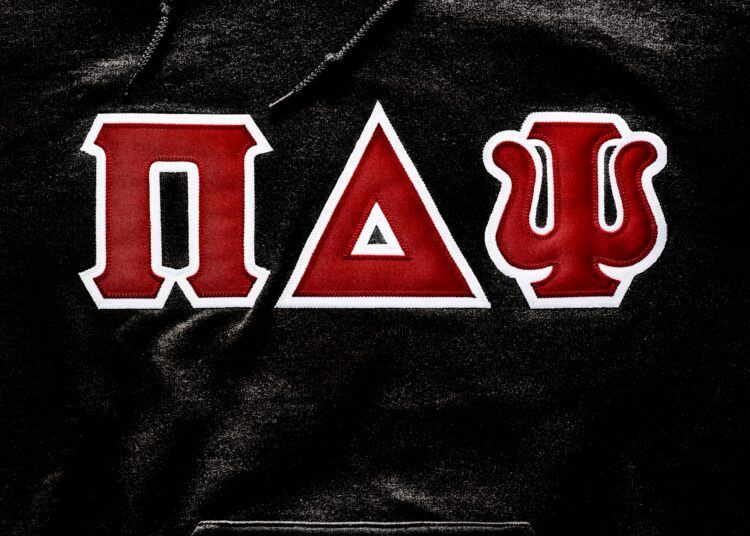Military fraternities, also known as military brotherhoods, are exclusive organizations that provide a support network for active duty and former military personnel. This article explores the history and significance of military fraternities, focusing on their rituals and traditions. These fraternities have a long history, dating back to ancient times when soldiers formed tight-knit groups for unity and morale. The importance of rituals in military fraternities is emphasized, as they symbolize the bond between members and promote a sense of belonging. Additionally, these fraternities serve as a support network, assisting members with challenges such as transitioning to civilian life and providing resources for employment and healthcare. However, the exclusive nature of these fraternities can present challenges and raise concerns about equality and appropriate behavior. To remain relevant, military fraternities must adapt to societal changes, promoting inclusivity and focusing on mental health support and career development. Despite these challenges, military fraternities continue to play a crucial role in fostering a sense of brotherhood and support among military personnel and their families.
The Brotherhood that Binds: Investigating the Rituals and Traditions of Military Fraternities
Introduction
Military fraternities, also known as military brotherhoods, are exclusive organizations that provide a support network for active duty and former military personnel. These fraternities are built on the foundation of brotherhood and are known for their unique rituals and traditions. In this article, we delve into the world of military fraternities, investigating their history, the importance of their rituals, and the bonds they create among its members.
History of Military Fraternities
Military fraternities have a long history that dates back to ancient times. The camaraderie and loyalty prevalent in military units have always been important for the success of armed forces. The concept of military fraternities took shape during the time of the ancient Greeks, where soldiers formed tight-knit groups to enhance their unity and morale during battles.
During the Middle Ages, knightly orders such as the Knights Templar and the Teutonic Knights followed rigorous rituals and traditions that promoted brotherhood and camaraderie. These orders played a crucial role in the protection of pilgrims and the expansion of Christian territories.
In modern times, military fraternities have evolved into more diverse organizations that serve as a support system for soldiers, veterans, and their families. The rituals and traditions associated with military fraternities have adapted over the years to reflect the changing dynamics of warfare and military culture.
The Importance of Rituals
Rituals are a vital part of military fraternities as they symbolize the bond between members and help instill a sense of belonging. These rituals often involve unique initiation ceremonies, secret handshakes, and symbolic gestures.
Initiation ceremonies are particularly significant as they mark the acceptance of new members into the fraternity. These ceremonies may involve physical tests, mental challenges, and the recitation of oaths to uphold the values of the fraternity. This process creates a shared experience among members, reinforcing the bond of brotherhood.
The secret handshakes and gestures associated with military fraternities serve as a means of identification and recognition. These actions can only be understood by fellow members, further solidifying the sense of belonging and camaraderie within the fraternity.
Bonds and Support Network
Military fraternities foster a strong sense of brotherhood and provide a support network for its members. The shared experiences, traditions, and values create bonds that extend beyond military service. This bond helps combat military-related challenges such as post-traumatic stress disorder (PTSD), transitioning to civilian life, and providing support during times of crisis.
The support network of military fraternities is particularly essential for veterans. Many veterans struggle with the transition from military to civilian life, and the camaraderie found in military fraternities can make this transition easier. These fraternities also provide resources and assistance for veterans in finding employment, healthcare, and other essential services.
The Challenges of Exclusive Membership
While military fraternities offer a strong support system, their exclusive nature can also present challenges. The exclusive membership can create an “us versus them” mentality, potentially leading to divisions within the military community. Some argue that this exclusivity goes against the values of inclusivity and equality that the military aims to promote.
Additionally, the secretive nature of some rituals and traditions can raise concerns about potential hazing or inappropriate behavior. It is crucial for military fraternities to ensure that their practices align with ethical guidelines and do not infringe upon the rights and well-being of their members.
The Future of Military Fraternities
As military culture and societal norms continue to evolve, military fraternities must adapt to remain relevant. It is important for these fraternities to strike a balance between preserving their rich traditions and embracing progress.
In recent years, efforts have been made to address potential issues of exclusivity and to promote inclusivity within military fraternities. Some organizations have expanded their membership criteria to include servicewomen, making these traditionally male-dominated fraternities more diverse.
Furthermore, there has been a shift in focus toward mental health support, transitioning assistance, and career development. Military fraternities are actively working to provide services that meet the evolving needs of their members throughout their military careers and beyond.
Conclusion
Military fraternities play a crucial role in the lives of active duty personnel, veterans, and their families. The rituals and traditions associated with these fraternities form a strong bond among members, fostering a sense of brotherhood and support.
While they face challenges related to exclusivity and the potential for inappropriate behavior, military fraternities continue to adapt and evolve. By embracing inclusivity, prioritizing mental health support, and providing comprehensive assistance during transitions, these fraternities can continue to serve as a vital support network for military personnel.













